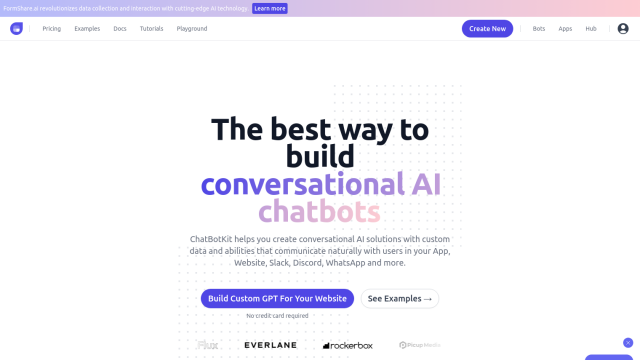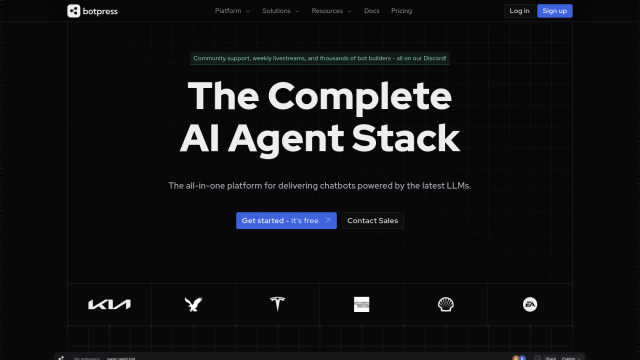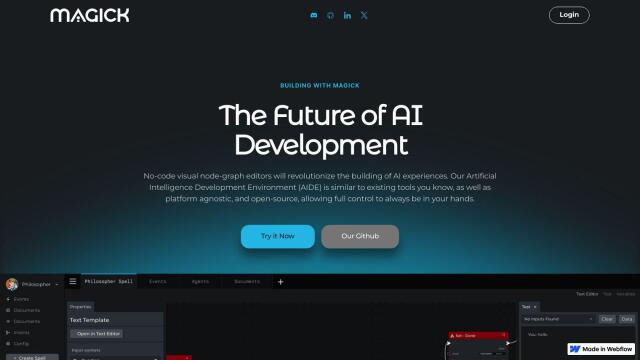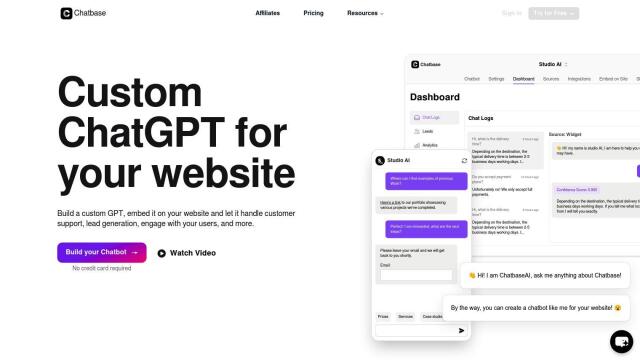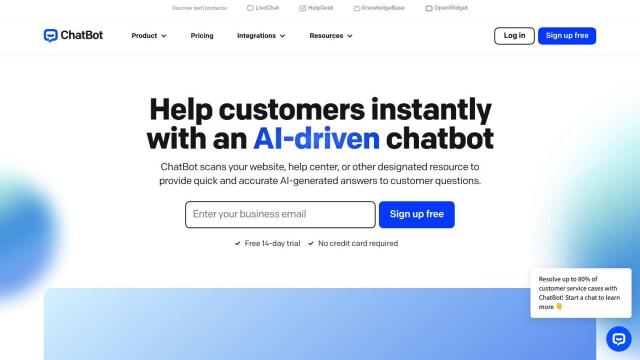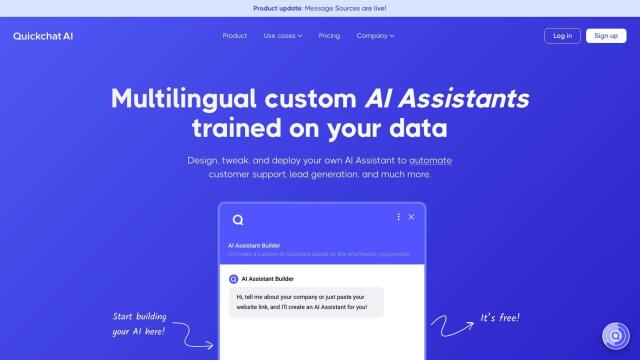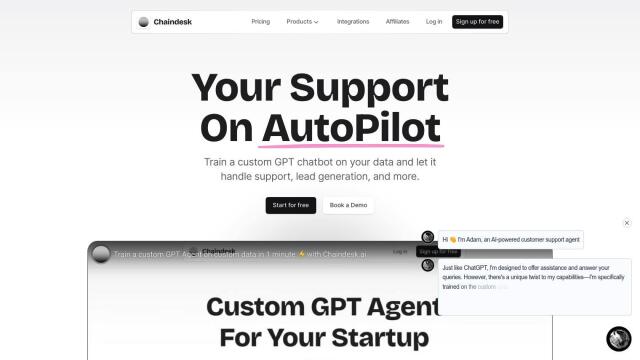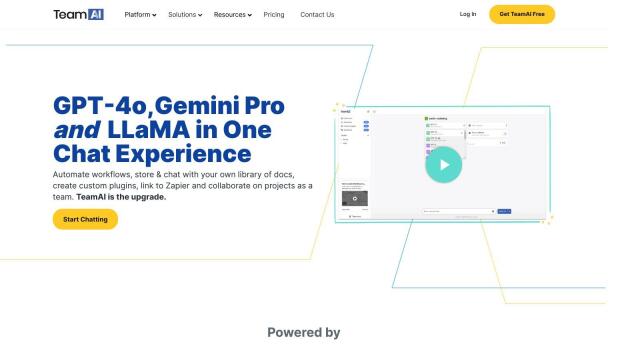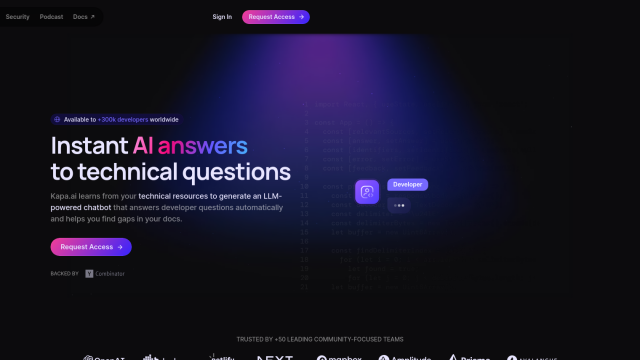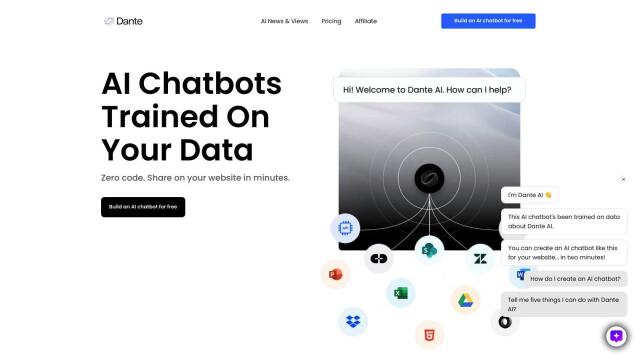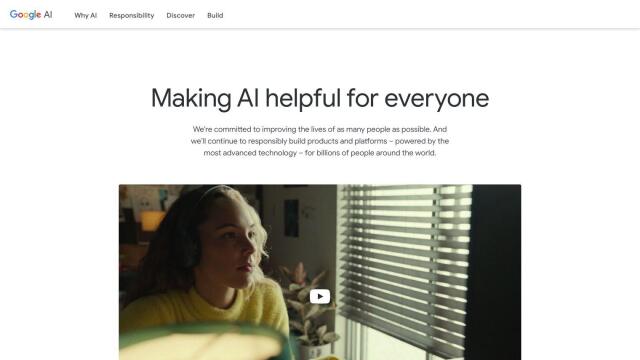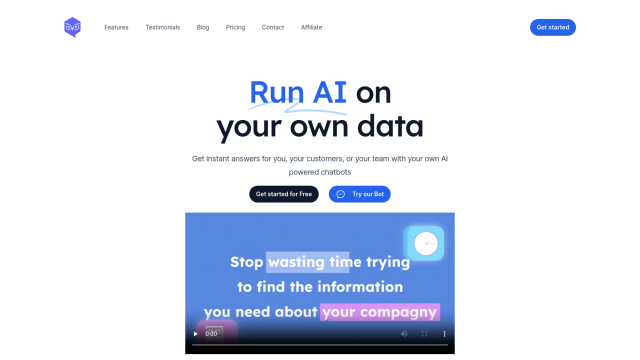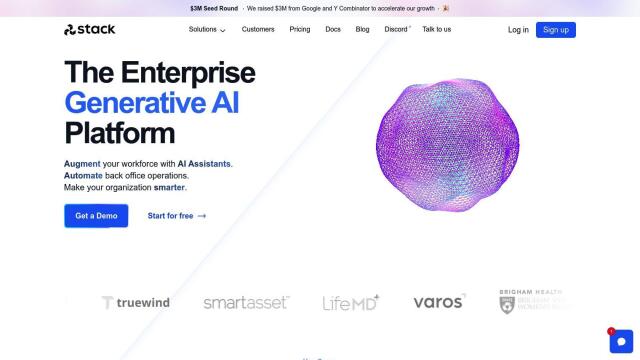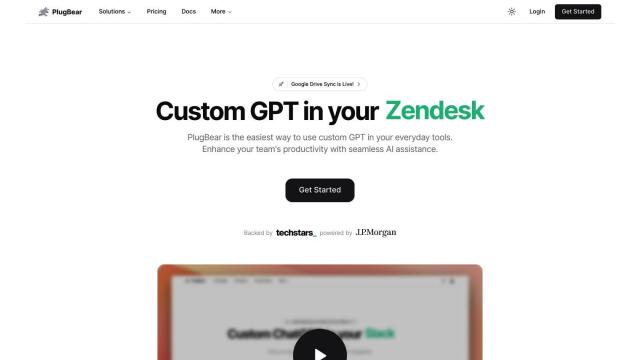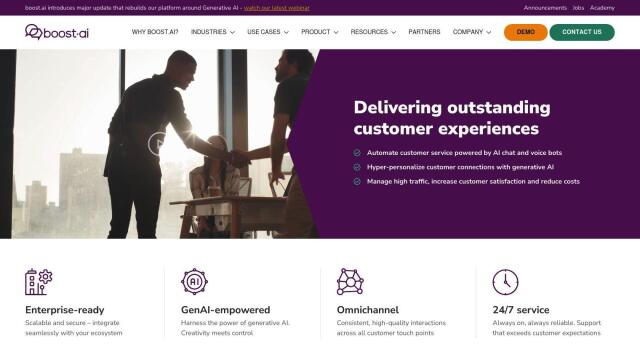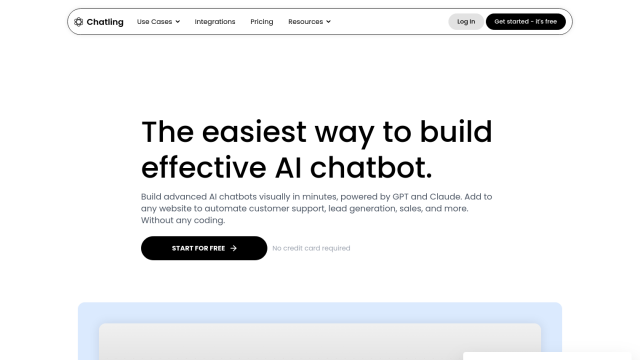Question: How can I integrate AI-powered chatbots and large language models into my real-time application?


LLMStack
If you want to add AI chatbots and large language models to your real-time system, LLMStack is a good option. This open-source software lets developers create a variety of AI applications, including chatbots, using pre-trained language models from companies like OpenAI and Cohere. It has a no-code interface to connect multiple LLMs to your data and business processes, supports vector databases for compact data storage, and can run in the cloud or on-premises.

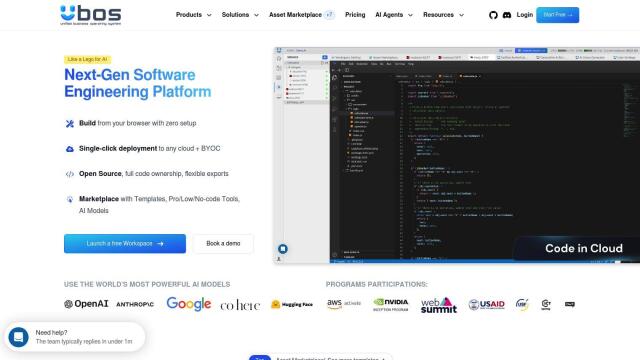
UBOS
Another option is UBOS, an all-in-one, low-code foundation for creating custom Generative AI and AI applications in your browser. UBOS supports a wide variety of AI models, including LLMs like ChatGPT and Llama 2, and is geared for both technical and nontechnical people. It comes with features like one-click deployment, collaborative workspaces and AI model integration, making it a good foundation for chatbots, admin panels and machine learning applications.


Abacus.AI
For more sophisticated AI abilities, Abacus.AI offers a full-fledged foundation for building and running applied AI agents and systems at large scale. It includes tools for fine-tuning LLMs, automating complex workflows and integrating multiple data sources. With features like high availability, governance and compliance, Abacus.AI is geared for enterprises looking to enhance customer service, optimize operations and forecast sales and revenue.

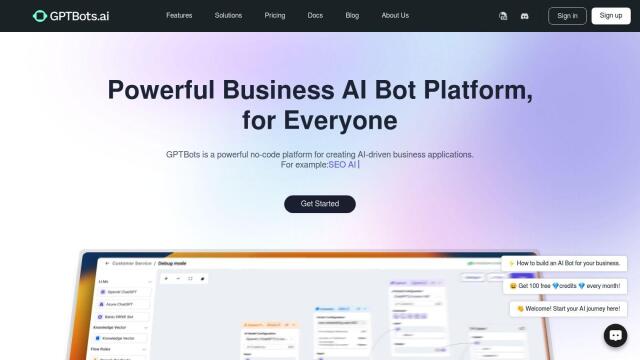
GPTBots
Last, GPTBots is a no-code foundation for building and training AI bots without programming. It accepts multimodal dialogue input and integrates with thousands of tools and applications. With features like a centralized knowledge base and private encryption services for data protection, GPTBots is good for businesses that want to use AI applications to increase productivity and efficiency.

